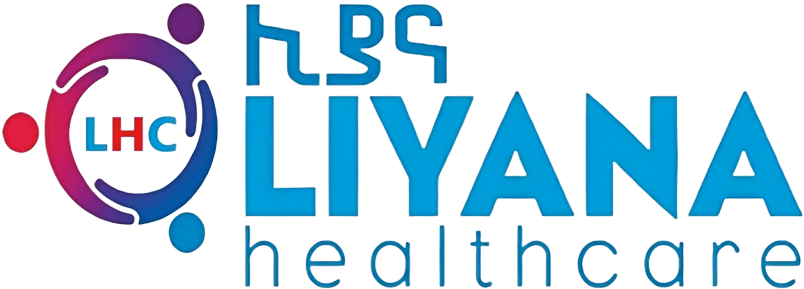
Business Unit Quality Assurance Officer at Liyana Health Care PLC
- Ethiopia
- Permanent
- Full-time
- Adopt and implement, and maintain quality standards, policies, and procedures that align with LIYANA’s mission, goals, and healthcare regulations.
- Ensure compliance with regulatory requirements, national (e.g., EQA, MoH National Accreditation program and others), and international standards (e.g., ISO 9001).
- Organize and conduct training programs to help employees at the Business Unit understand and uphold quality standards and tools.
- Promote quality ownership and accountability at the business Unit.
- Implement systems for continuous quality improvement for Business Unit Operation.
- Lead the monitoring and quality checks of the Business Unit processes to verify conformance to defined standards (Internal policies, Regulatory, National standards, and international benchmarking).
- Identify areas of substandard performance and nonconformities and work with concerned teams to quickly address and correct them.
- Investigate quality problems, find the root causes, and implement corrective preventive actions (CAPA) and Quality improvement projects to keep issues from recurring and sustainable improvement.
- Engage in the efforts and processes of achieving and maintaining relevant quality certifications and accreditations.
- Lead regular internal Business Unit level quality audits to assess adherence to standards, identify non-conformities, and implement corrective actions.
- Support and lead the periodic Internal Quality Audit review sessions
- Maintain accurate and updated records of quality policies, procedures, audits, and SOPs.
- Ensure traceability and consistency of all quality-related documentation at the Business Unit level.
- Maintain and adapt a compendium of statutory and legal requirements that each Business Unit expected \to comply with.
- Conduct regular assessments at the Business unit to ensure compliance with regional and national regulations.
- Ensure the BU got updated on regulatory and licensing requirements and proper documentation.
- Support readiness for inspections and manage responses to the findings.
- Monitor and report key performance indicators associated with quality.
- Coordinate and conduct internal audits for Business Units twice per year.
- Conduct internal audit for the BU twice per year.
- Ensure timely closure of audit action items.
- Assist the Business Unit level management review preparations.
- Support the organization during regulatory inspections and third-party audits.
- Lead quarterly assessments using national accreditation standards.
- Develop and monitor facility-specific improvement plans.
- Provide technical support and capacity building for underperforming units.
- Participate in the preparation and submission of the Ethiopian Quality Award requirements.
- Conduct internal assessments aligned with award criteria.
- Manage documentation, readiness for site visits, and implementation of feedback.
- Ensure quarterly evaluations are done using PSFHI and IPC Flat Score frameworks by departments.
- Ensure the development of unit-level improvement plans.
- Guide the development of departmental -level improvement plans.
- Promote sharing of best practices across the departments.
- Lead clinical audit team and ensure clinical audit programs are regularly conducted.
- Guide the Business Unit for designing audit tools and methodologies.
- Ensure clinical audits findings are communicated to relevant body and correction, prevention actions are developed with QIP development, if necessary.
- Monitor implementation of audit recommendations and maintain an audit repository.
- Apply model for improvement method for sustainable improvements to optimize processes and enhance outcomes.
- Track progress and promote institutional learning through project outcomes.
- Lead initiatives to drive a culture of continuous quality improvement.
- Identify potential quality risks early and implement mitigation strategies to manage or prevent them.
- Maintain a risk register and ensure implementation of mitigation plans.
- Analyze incidents and near-misses to improve risk awareness and prevention.
- Propose and test innovative improvement ideas for quality and safety improvement.
- Propose and lead pilot projects based on industry benchmarks and internal needs at Business Unit level.
- Foster a culture of problem-solving and innovation among quality teams.
- Align quality and patient safety strategic plans with BU goals.
- Support the corporate level quality Meetings.
- Present quality performance reports, (Clinical audits, Quality improvement projects, and best practices) and strategic direction.
- Engage Business unit level leadership and teams to collaborate in improvement planning and cascade quality review by BU context.
- Provide leadership to all quality activities at the Business Unit.
- Ensure alignment with ISO, PSFHI, IPC, and other standards.
- Serve as the bridge between business Unit management, employees, suppliers, customers, and regulators, and external quality auditors on quality-related matters.
- Represent the Business Unit in forums with National (e.g., MoH, EQA) and international accreditation bodies (ISO) and other relevant stakeholders as needed.
- Analyze and report quality performance indicators to the CSQO.
- Regularly update the CSQO and the Business unit senior leadership on quality performance, key issues, and improvement initiatives.
- Support the core leadership at Business Unit levels to make informed decisions with regard to quality with clear and insightful reporting.
- Ensure transparent communication of quality objectives, progress, challenges and way outs.
- Bachelor’s or Master’s degree in Quality Management, Engineering, Business Administration, or health science fields like medicine and public health (Advanced degrees are preferred).
- Minimum of 2 years in healthcare, with at least 1 years in quality and patient safety roles
- Proven experience in audits, accreditation, QI projects, corrective and preventive actions (CAPA) processes, and risk management
- Professional certifications in Quality Management Systems (e.g., ISO 9001, TQM) are highly desirable.
- Training in patient safety, clinical audit, or quality improvement (desirable)
- Proficiency in audit tools, QI methodologies (PDSA), and risk analysis
- Strong analytical and data interpretation skills
- Fluent in English and the required working language
- Proficiency in Microsoft Word and Excel
- High-quality report writing and documentation
- Strong knowledge of quality standards, compliance, audits, risk management, and regulatory requirements.
- Excellent leadership, communication, coaching, and project management skills.
- A genuine commitment to excellence, continuous learning, and collaboration
JobWeb Ethiopia